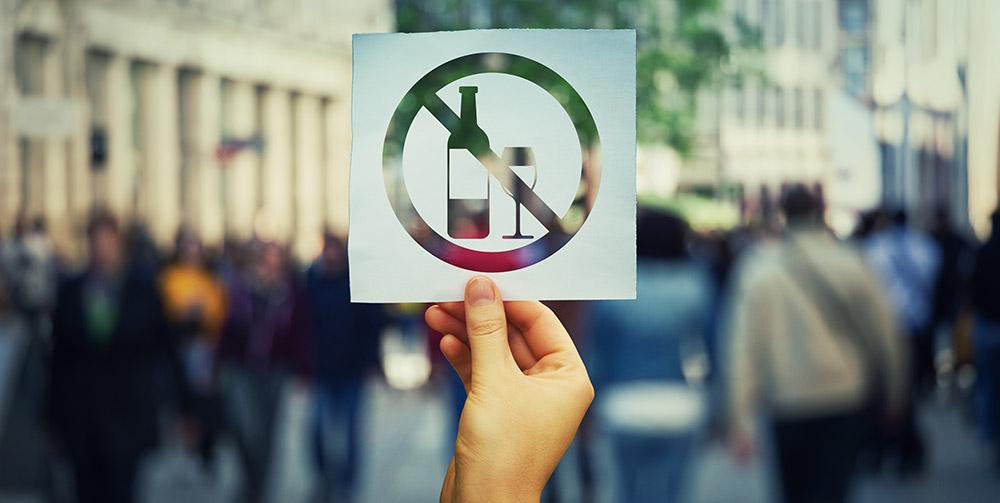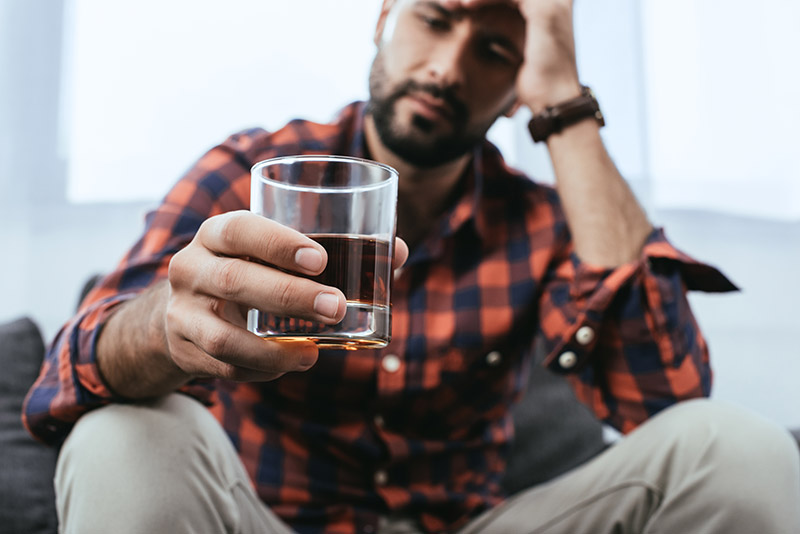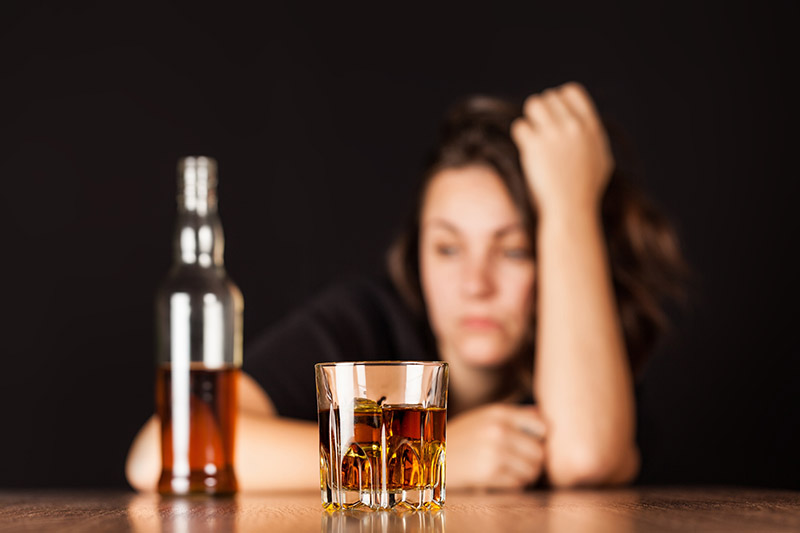How To Stop Drinking Alcohol Safely
The number of dependent drinkers in England is around 602,391, of which only 18 percent receive treatment. This could be due to a variety of factors, such as:
- Social Struggles
- Past Trauma and Abuse
- Mental Health Struggles
- +Many more reasons
That being said, there are significant risks of quitting alcohol consumption abruptly. For this reason, many people suffering from addiction have poor experiences with quitting. If you or a loved one are dependent on alcohol and looking to address your unhealthy drinking habits, here’s how to do so in a safe way.
Things to Consider When Stopping?
Making a choice to cut back on alcohol is a big one, so the right reasons should drive it. Before making a decision to quit drinking, you should consider the following.

Know Why You’re Quitting Alcohol
For alcoholics who want to start their recovery journey, it’s vital to acknowledge their problematic alcohol use and its effect on their health, family relationships, and career.
The biggest reason a person wants to quit drinking is that it has detrimental effects on their health, mentally and physically. In the long term, alcohol addiction can increase the body’s susceptibility to diseases like pneumonia and tuberculosis, and the minds mental struggles.
Additionally, it can lead to inflammation in the kidneys, liver, and blood vessels. And while liver damage is a common concern, alcohol use also increases one’s risk of stroke and blood pressure issues.
Aside from the physical health risks, alcohol addiction can lead to several issues in relationships, like a lack of communication and poor intimacy. It can also deteriorate trust between partners or even with members of the family.
Stopping Drinking Suddenly Can Be Dangerous & Fatal
Stopping Drinking Suddenly Can Be Dangerous & Fatal
Before cutting back on alcohol, the next major consideration is that doing so suddenly could cause severe withdrawal symptoms. These include tremors, anxiety, rapid heart rate, nausea, and headaches, among others. If left untreated, it could result in violent seizures or the most severe form of alcohol withdrawal, called delirium tremens.
It’s why most rehab centres emphasise treatment options that take things slowly. Of course, excessive and regular consumption of alcohol causes significant structural changes within the brain. These changes affect processes related to stress and self-control, as well as the brain’s reward system. Because of these changes, a person begins to show compulsive use patterns characteristic of alcohol addiction.

Prepare a plan and start reducing intake slowly
Instead of quitting immediately, come up with a plan on how you will curb your drinking habits. This will require understanding how much you drink on a regular basis and reducing this slowly over a couple of weeks (if this is possible). You may have passed the point of feeling you have a choice.
A measurable way to cut back on alcohol is to reduce your intake by 10% and then drink at that limit for the next four days before reducing it again, this includes your safety for your physical health, remember quitting alcohol can be fatal, so if you are uncertain, always seek help from a medical professional.
Recognising Alcohol Withdrawal Symptoms
When reducing your intake, you may likely cut down too much too quickly, which can lead to withdrawal symptoms. To understand whether or not you’re cutting down too quickly, being able to recognise alcohol withdrawal symptoms is essential.
Six hours after you stop drinking, you can experience symptoms such as sweating, insomnia, nausea, shaky hands, and anxiety.
Approximately 12 to 48 hours after your last drink, you may start to experience more severe symptoms, such as hallucinations, which occur about 12 to 24 hours after your last drink. These are often followed by seizures, which occur about two days after the cessation.
Around 48 to 72 hours after you stop drinking, you may experience delirium tremens, characterised by vivid delusions and hallucinations. While it only affects about 5 percent of people suffering from withdrawal symptoms, it can be perilous.
If you experience these symptoms, continue drinking at your recently set safe level for the next week before cutting down further. To prevent the risk of withdrawal symptoms, opt to cut down consumption by 5% rather than 10%. Once you’re at the point that you’re drinking less than 10 units each day, you can stop drinking altogether.
Avoiding drinking triggers
One of the major obstacles people face on the road to recovery is that certain triggers force them to relapse. It’s true that certain feelings, places, or even people, could trigger a need to have alcohol. It’s important to understand these triggers and using avoidance, where applicable, to deal with certain triggers.
In the event that avoiding triggers isn’t possible, like when there’s a holiday, coping skills can help. These involve speaking to a loved one about your struggles, channelling that need for stimulation into exercise, or watching a movie instead.

Managing alcohol cravings
After cutting back on alcohol use, you may likely face alcohol cravings. This happens due to the effect of prolonged alcohol consumption on the neurotransmitters. Such changes cause a person to build a tolerance for alcohol, so they experience negative feelings like anxiety when not drinking.
In these situations, the first step is to distract oneself by doing something else, like going for a walk, cleaning up around the house, and getting support from friends as opposed to going out for drinks.
How Long Does it Take
Excessive consumption of alcohol can lead to trace amounts remaining in the body, which leads to severe withdrawal symptoms. This is where an alcohol detox can prove helpful for recovery. Unfortunately, there’s no set time for how long it takes to detoxify the body from alcohol. Instead, factors such as gender, age, and when they had their last drink can have an impact on how soon the body metabolises alcohol.
So if someone is older, alcohol will remain in their liver for longer. Consequently, unprocessed alcohol remains in their bloodstream for much longer. As for gender, women who tend to have a higher body fat percentage process alcohol at a slower rate.
What does moderate drinking mean?

According to the CDC, moderate drinking refers to two alcoholic drinks or less each day for men and one drink or less each day for women. Based on information from the NHS, drinking fewer than fourteen units each week. These limits are set to allow the body to process alcohol without large amounts of unprocessed alcohol in the bloodstream.
Staying alcohol-free
Once you successfully manage to cut back on alcohol consumption without facing withdrawal symptoms, it’s time to learn how you can continue to stay alcohol-free. Here are a few tips on how you can do so.
- Refrain from keeping alcohol at home
- Remember why you stopped drinking (one way to practice this is through support groups)
- Surround yourself with people who set a good example by not drinking alcohol.
- See a medical professional for advice and talk to them about your symptoms
- Encourage yourself to try new physical challenges, like running a marathon or weightlifting.
- Join a support group where you can celebrate your own, as well as others’, successes. It is also an effective way to understand that you’re not on this journey alone. Besides your loved ones, others have shared similar experiences, and it’s never too late to become a healthier you.
Enter your phone number below and one of our qualified addiction specialists will get in touch to discuss your options.
Get professional external Help
Coping with alcohol addiction is much more difficult when you’re doing it on your own. Contacting a professional, whether you speak to them over the phone or online, is a step towards regaining control of your life. With a professional rehab service, keeping track of your recovery is easier as you stay accountable and consistent.
Experts are aware of treatment methods like cognitive behavioural therapy, which changes the thoughts and feelings you associate with a behaviour (drinking). And even if you stumble, you have support to get back up and continue working towards an alcohol-free lifestyle.
